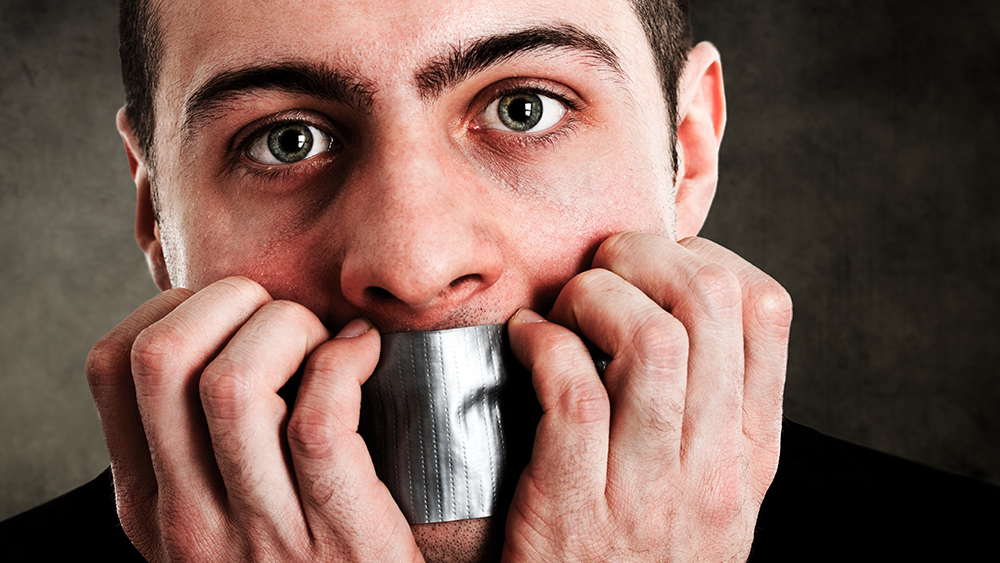MSNBC openly attacks First Amendment, says free speech leaves American democracy “vulnerable”
03/11/2024 / By Ethan Huff

If it were up to MSNBC legal analyst Barbara McQuade, the First Amendment to the United States Constitution would be abolished in order to protect Americans against “disinformation” campaigns.
In a recent segment on “The Rachel Maddow Show,” the University of Michigan law professor complained that it is precisely America’s “deep commitment to free speech” that makes the country susceptible to “misinformation.”
The author of a new book we will not bother to mention here, McQuade says her “goal” in attacking the First Amendment in her new book is to spark a “national conversation about truth and our commitment to it.”
“I hope that by dissecting it, explaining it, and educating the public, we can all see disinformation for what it is so that we can begin to push back against it,” McQueen told Maddow.
When Maddow asked McQuade if she believes America is just as vulnerable as other countries to disinformation, McQuade responded that she feels things are worse in the U.S.
“Actually, Rachel, I think we’re more susceptible to it than other countries, and that’s because some of our greatest strengths can also be our Achilles Heel,” McQuade said.
“So, for example, our deep commitment to free speech in our First Amendment. It is a cherished right. It’s an important right in democracy, and nobody wants to get rid of it, but it makes us vulnerable to claims [that] anything we want to do related to speech is censorship.”
(Related: These constant media attacks on free speech are part of the 5th generation warfare agenda that Dr. Robert Malone says is in full swing throughout the West.)
Supreme Court can limit speech, says McQuade
As to the constitutionality of McQuade’s position, she believes that the Supreme Court is actually in agreement with her that the First Amendment has limits and is not some free pass for people to say whatever they want.
“Of course, the Supreme Court has held that all fundamental rights, even the right to free speech, can be limited as long as there is a compelling governmental interest and the restriction is narrowly tailored to achieve that interest,” McQuade explained.
“But I think any time someone tries to do anything that might limit free speech, people claim censorship.”
Using the example of the recent SCOTUS decision concerning how individual states regulate the way social media platforms moderate content, McQuade feels that there are “common-sense solutions” to the problem of unregulated free speech that, using different rhetoric, can avoid the label of “censorship.”
“We need to have a conversation,” McQuade demanded about the free speech issue. “Instead, we throw out terms like ‘censorship,’ call each other names, use labels, and retreat to our opposite sides. We need to be pragmatic and come up with real solutions.”
Maddow, pleased with McQuade’s position and her new book, called the discourse on her show a “real public service and a pleasure.”
“Amazing that a legal analyst doesn’t know the rationale behind the 1st Amendment,” wrote one incensed commenter about McQuade’s position. “Who gets to decide the truth? Certainly not the government.”
“The government is free to make any argument or counterargument they want, but deciding what is misinformation and should be blocked is pure censorship and a violation of the First Amendment.”
Another warned that what McQuade is suggesting “should send chills down the spine of any U.S. citizen.”
“When the media decides ‘what is disinformation’ by censoring free speech, we are headed down the path of totalitarianism,” this person warned. “Give me the facts and I will decide. It’s not the media’s right to decide for you what is true and what is not.”
The latest news about the media’s assault on the First Amendment can be found at Censorship.news.
Sources for this article include:
Submit a correction >>
Tagged Under:
Barbara McQuade, big government, Censorship, deep state, democracy, First Amendment, free speech, Liberty, msnbc, rachel maddow, speech police, thought police
This article may contain statements that reflect the opinion of the author
RECENT NEWS & ARTICLES
COPYRIGHT © 2018 SPEECHPOLICE.NEWS
All content posted on this site is protected under Free Speech. SpeechPolice.news is not responsible for content written by contributing authors. The information on this site is provided for educational and entertainment purposes only. It is not intended as a substitute for professional advice of any kind. SpeechPolice.news assumes no responsibility for the use or misuse of this material. All trademarks, registered trademarks and service marks mentioned on this site are the property of their respective owners.



















